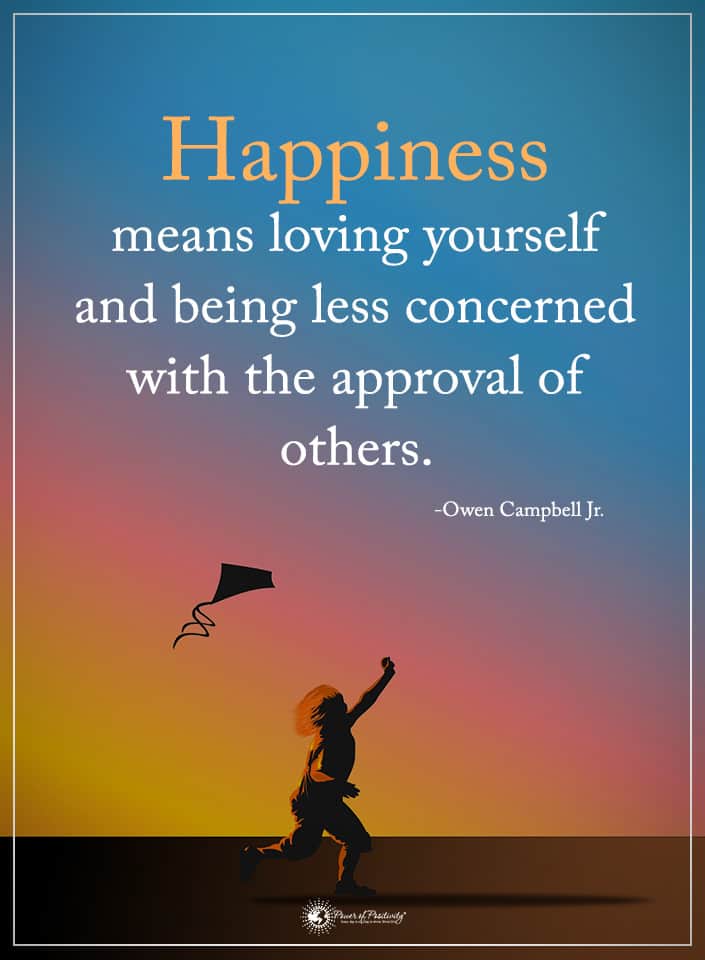How important is the pursuit of happiness, according to psychologists? When Jefferson penned the Declaration of Independence, he and our founders insisted it was among certain human rights. Not only is finding happiness necessary, but your well-being depends on it.
Is your ability to be happy intuitive, or is it something that must be cultivated over time? While the dictionary defines happiness as bliss and a joyful state of being, everyone puts their spin on its meaning. As you read this article, you are probably thinking about what makes you happy.
If your happiness quotient is deficient, you are not alone. Out of 140 countries measured last year for a happiness index, the United States was ranked 108th. Such a low rank suggests that many people are not as happy as we want.
Are you satisfied with your happiness quotient? Are you procrastinating happiness until you’ve marked off everything on your list? Does your life seem lackluster when compared to others?
Take hope, because you can increase your happy number. The pursuit of happiness is not dependent on attaining beauty, wealth, or status. Little changes in your daily life can bring you the sustainable joy that you desire.
How Happy are You?
Your explanation of happiness may differ from other people’s views. What comes to mind when you hear the word? When you see the iconic yellow smiley face, is that how you feel on the inside?
Perhaps you already have the things that society dictates will make you happy. Even if you have the home, family, car, career, and all the world can offer, you may still be unfulfilled. Does this sound familiar?
If you could measure your happiness quotient on a scale from ten being the happiest to one being miserable, what would your score be? When you are honest with yourself and realize your life could be more content, then you can do something about it.
The Myths of Happiness
The pursuit of happiness is a collective goal. How many times have you told yourself that all you want in life is to be happy? So, like most of us, you prepared a happiness “checklist” early in life.
Your happiness checklist has probably been modified hundreds of times over the years. Age and society’s expectations are continually shaping it. Shouldn’t everyone be happy all the time?
When you discover some of the myths of happiness, you may find its true meaning. Modern advertising depends on you to believe these delusions to keep them wealthy. Yet, when you buy into their skewed philosophy, you may be even less content.
Myth #1 – It’s Perpetual
The first happiness myth to dispel is that it is perpetual. Regardless of the painted-on smiles, you see on tv, and in magazines, nobody is happy all the time. Life is based on positive and negative experiences that help mold you.
If your life were total bliss, then how would you learn or grow? We learn from our mistakes and use pain to make us stronger. You need to reprogram your brain because “happily ever after” is not reality.
Myth #2 – You Don’t Need a Mental Checklist
Another myth that may suppress your goal of happiness is your mental checklist. Most entries probably start with “I will finally be happy when…” We all have these lists that only block happiness in the long run.
Re-evaluate your joy checklist and see what you have checked off from childhood to present. Has obtaining these goals brought pure delight? Many individuals find that they are only blissful for a short time, and then they go back to square one.
Have you bought into these myths that continue to rob you of a fulfilling life? If you want to be happy, look beyond the myths. You don’t need a checklist, because you were born with the ability to create your happiness.
A Truth: Happiness is Internal, Not External
Everything in our world is vying for your attention. Television, movies, books, magazines, and looping ads cry out to you and drive the need for more. In subtle ways, the media brainwashes people to believe that materialism brings contentment.
Would you be thrilled with a luxury home or car? Sure, but only temporarily. How would you feel if you won the lottery? Recent studies on mega-lottery winners show that their happiness quotients eventually returned to the level it was before they got money.
If materialism is the ticket to bliss, then why do you see so much unrest among the rich and famous? Even with their wealth and luxuries, stars are prone to depression, substance abuse, and suicide.
The adage is true that money cannot buy happiness.
Have you come to believe that having more, bigger, and better will make you better off? It’s a common misperception. When you get what you want, how long is it until you are unsatisfied and think you need more?
The reason that materialism is a deception is that “things” do not make you happy. As the novelty of the new item fades, so does your satisfaction.
The pursuit of happiness begins inside. Sociologists and anthropologists have studied primitive cultures and found that their happy quotient often doesn’t depend on materialism. How can people who have so little be so content in life?
Cultivating Joy in Your Life
If you follow society’s grand illusion of the “good life,” then you will be disappointed. Chasing after the illusion of external pleasure can leave you drained physically, mentally, spiritually, and financially. You can take charge of your pursuit of happiness.
The good news is that bringing more satisfaction and happiness into your life won’t cost a penny. It will require that you be honest with yourself and dispel false preconceptions. Like anything, cultivating more delight takes practice and determination.
1 – Practice Gratitude
It has been said that true happiness is not having what you want but wanting what you have. Gratitude is a powerful contentment booster. When you are grateful for the things in your life, it often brings peace and satisfaction.
Many people find that keeping a gratitude journal is useful. Make a list of anything you can think of in your life for which you are grateful. As you add to your list and reflect on it each day, you may find your happiness levels rising. Always count your blessings to avoid dwelling on the negative things in life.
2 – Make Happiness Contentment a Priority
Abraham Lincoln said, “most folks are about as happy as they make up their minds to be.” Based on his expertise, it’s possible to sabotage your joy.
To be happy, you must be your cheerleader. Reflect on the things that ring true for you and bring lasting joy. Resolve to think more positive thoughts and less negative ones. Be kind to yourself and determine that you have a right to be joyful.
Instead of procrastinating cheerfulness until you attain a goal on your mental checklist, decide to be blissful today. While it is unrealistic to think you will have joy all the time, you can determine to have happiness in the present. As you practice being present in the moment, you take possession of your happy quotient.
3 – Practice Forgiveness and Releasing Guilt
Another stumbling block to your pursuit of happiness is holding grudges. Unforgiven trespasses dampen your spirits and keep you sad. Forgiveness does not excuse the offender, but it allows you to move on with your life.
Make a mental list of the grudges that still rob you of joy. Even if you offer forgiveness in your heart and not in person, it will be a tool of healing. If you have said or done something that warrants guilt, seeking forgiveness, and making amends can boost your spirits and contentment.
 Final Thoughts: Revise Your Requirements in the Pursuit of Happiness
Final Thoughts: Revise Your Requirements in the Pursuit of Happiness
There is nothing wrong with having goals and wanting nice things. If you become dependent on them for contentment, then they become more of a problem than a solution. The pursuit of happiness requires a lot of honest souls searching and revising what you assumed were truths.
When people with high happiness quotients are studied, a common characteristic is found. These people often focus on “quality” rather than “quantity” in their lives. As you explore your happiness checklist, do you find that it has become more spiritual and less material-oriented?
Nobody has all the answers in this life. You may find that your relentless race for pleasure is the very thing that stands in your way. Raising your happy meter is a life-long journey, and it’s not a quick fix.
Everyone wants joy and satisfaction in our lives. Your “aha” moment may be like Dorothy’s red slippers in the iconic movie. It’s time to click your heels and realize that you had the power within you all along. Now all you need to do is activate it.






















